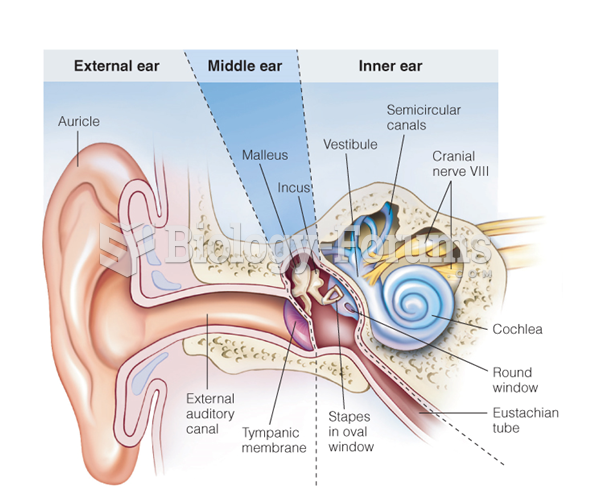|
|
|
Nearly 31 million adults in America have a total cholesterol level that is more than 240 mg per dL.
Human stomach acid is strong enough to dissolve small pieces of metal such as razor blades or staples.
For about 100 years, scientists thought that peptic ulcers were caused by stress, spicy food, and alcohol. Later, researchers added stomach acid to the list of causes and began treating ulcers with antacids. Now it is known that peptic ulcers are predominantly caused by Helicobacter pylori, a spiral-shaped bacterium that normally exist in the stomach.
Everyone has one nostril that is larger than the other.
It is believed that humans initially contracted crabs from gorillas about 3 million years ago from either sleeping in gorilla nests or eating the apes.







